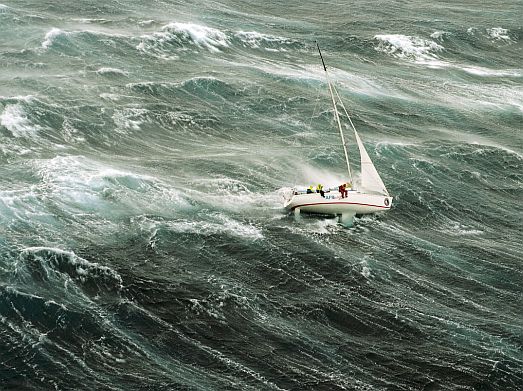|
It's a rare moment in human history when what's going on, is the same for everyone everywhere. And even if what's happening with you isn't happening for everyone else right now, it'll soon be.
I could listen her forever. She was saying that it's as if a storm, a huge storm suddenly ie out of the blue, swept over us on a beautiful calm day when everyone was out on the bay for an easy, pleasant, leisurely weekend sailing, in the company of good friends. Completely unexpectedly, we all found ourselves in the midst of this colossal, merciless, very dangerous tempest, the kind of which even the most skilled yachtswomen and yachtsmen suffer their worst nightmares about.
I got it. She was creating an analogy for the current set of circumstances the world is facing, and the way they've all but besieged us and, without our permission, embedded themselves firmly in all aspects of our lives. "It doesn't look good" I mused (without blaming - just factually). "No it doesn't" she agreed, adding "Some of the yachts are going to go down, along with their captain and crew. Some aren't. Like the angel of death, this storm will take some, and pass over others.".
"I wonder" I posed, warming to her analogy, "if I have say as to whether my yacht will go down, or whether it won't ie is this storm an equal-opportunity destroyer, or not?". She paused, pursing her lips, then said "Something like this is so unusual, and we know so little about it, that we can't play it based on our prior experience of similar, earlier events because there weren't any. So I venture that a yacht which is most likely to go down, is one on which the captain takes his hands off the tiller. Conversely, a yacht which is least likely to go down, is one on which the captain keeps her hands on the tiller.". "And what is 'the tiller'?" I asked. "Oh, it's that pole attached to the rudder ie it's the thing you steer a yacht with" she said. "No no, that I got" I smiled, "what I'm really asking is: in your analogy, what is 'the tiller'?".
 Yacht In A
Yacht In A